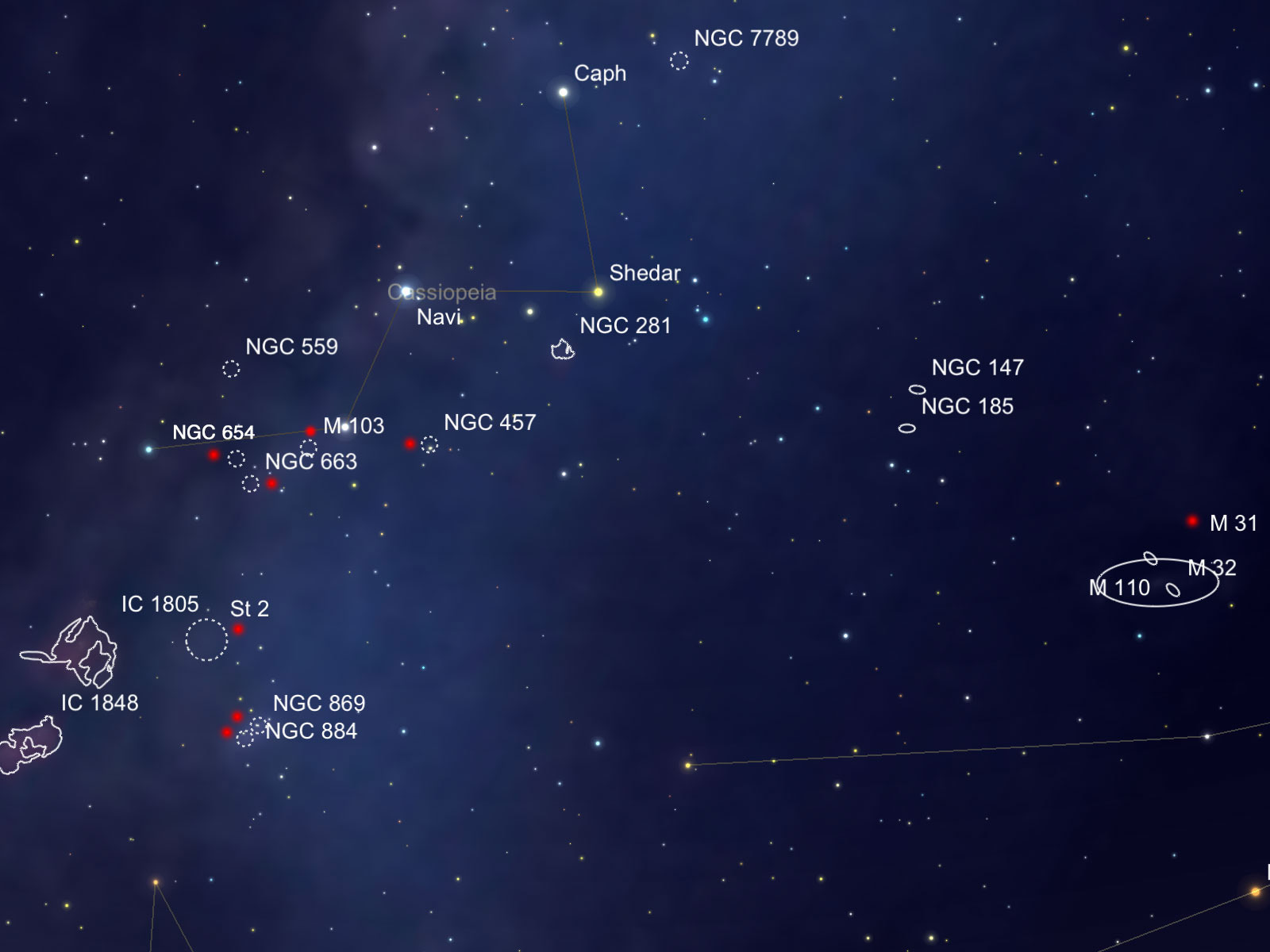
Introduction | Map | Find/Identify | My Own Photos | My Own Observations | References
On this page I collect my observations of the open star cluster M 103 (NGC 581) in the constellation Cassiopeia.
To Stoyan's surprise, the open star cluster M 103 in the constellation Cassiopeia has made it into Messier's list as the only star cluster of the impressive stellar field in the Cassiopeia constellation (M 103, NGC 457, NGC 654, NGC 663). But actually it looks more like a small asterism of 3-4 stars - at least in my telescopes. In the eVscope it looks richer...
With the Vespera, I was able to see NGC 663, NGC 659, NGC 654 and M 103 in the same field of view.
| M 103 (NGC 581) | NGC 663 | NGC 659 | NGC 654 | |||
| Size: 6' (Stoyan) Distance: 7,200 light years (Stoyan) Rating: *** (Stoyan) |
Size: 15' (Stoyan) Distance: 6,400 light years (Stoyan) Rating: ** (Stoyan) |
Size: 5' (SkySafari) Distance: 6,300 light years (SkySafari) Rating: --- |
Size: 5' x 3' (Stoyan) Distance: 9,500 light years (Stoyan) Rating: * (Stoyan) |
M 103, to the left of it NGC 654 and NGC 663, to the right of it NGC 457 (Owl Cluster). For orientation purposes, the Andromeda Galaxy M 31 is included in the map, as well as the Perseus double cluster NGC 884/869 and above it St 2, which, according to Stoyan, is a "must" for small telescopes. (Image Courtesy of SkySafari Astronomy, www.simulationcurriculum.com)
Find: The open star cluster M 103 is located a little bit below the connecting line between the two stars Segin und Ruchbah in constellation Cassiopeia. Seen from Ruchbah, the star to the right, M 103 is located at about 1/5 of the total distance.
Identify: M 103 in the constellation Cassiopeia is somewhat hard to identify for me. Typically, I can see only a few stars, which are hard for me to recognize as a cluster at all. Below is the view in SkySafari:
(Images Courtesy of SkySafari Astronomy, www.simulationcurriculum.com)
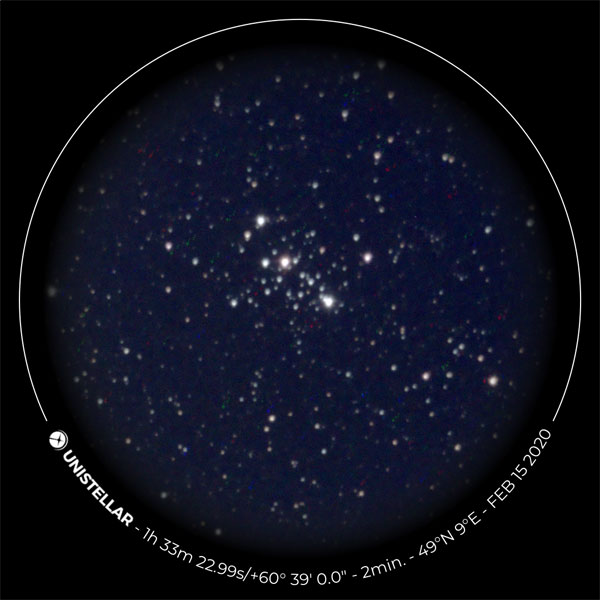 |
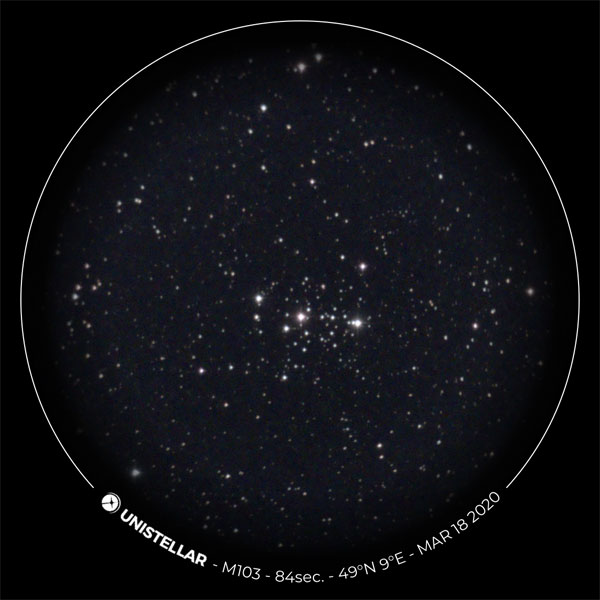 |
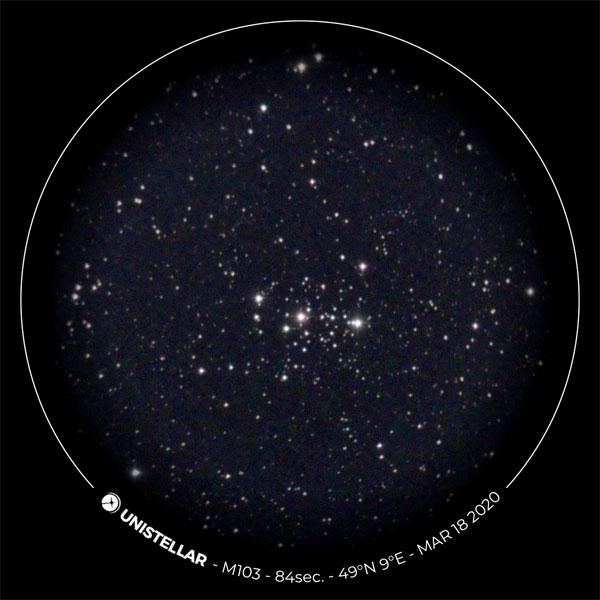 |
||
M 103 - Feb 15, 2020 |
M 103 - Mar 18, 2020 |
M 103 - Mar 18, 2020, processed |
||
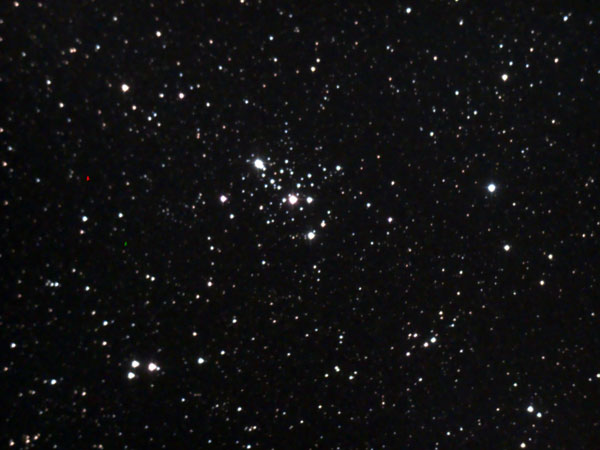 |
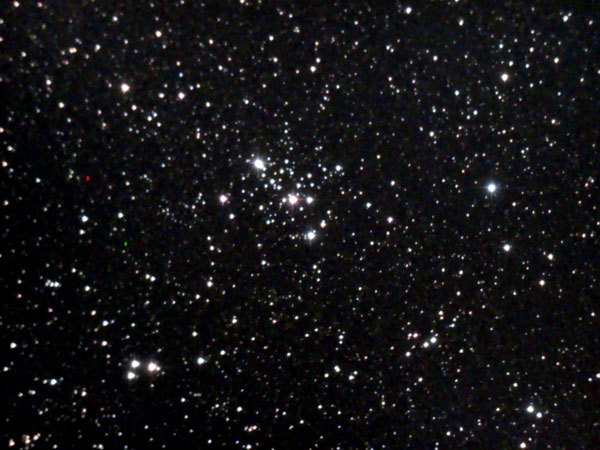 |
|||
M 103 - Sep 7, 2020 |
M 103 - Sep 7, 2020, processed |
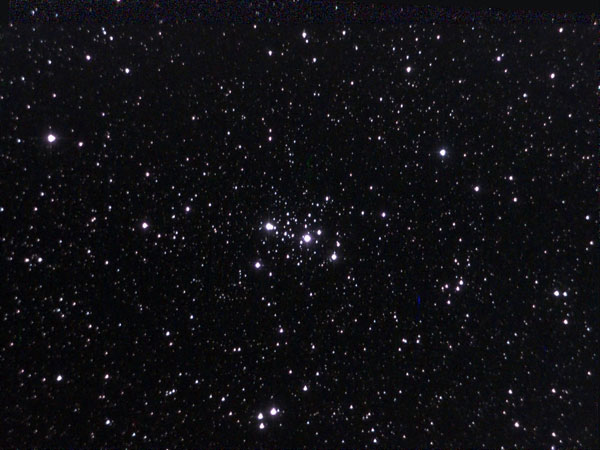 |
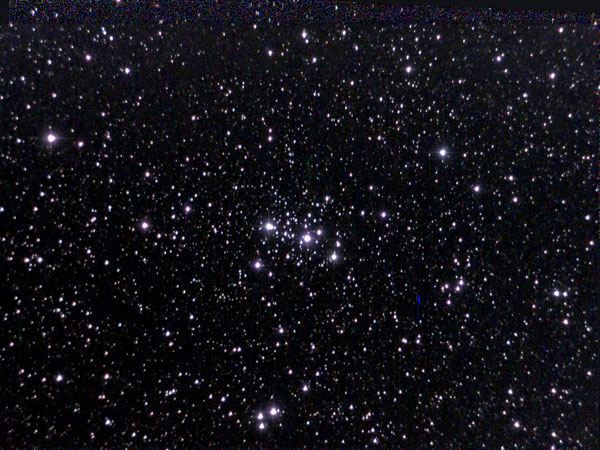 |
|
M 103 - Nov 2, 2022 |
M 103 - Nov 2, 2022, processed |
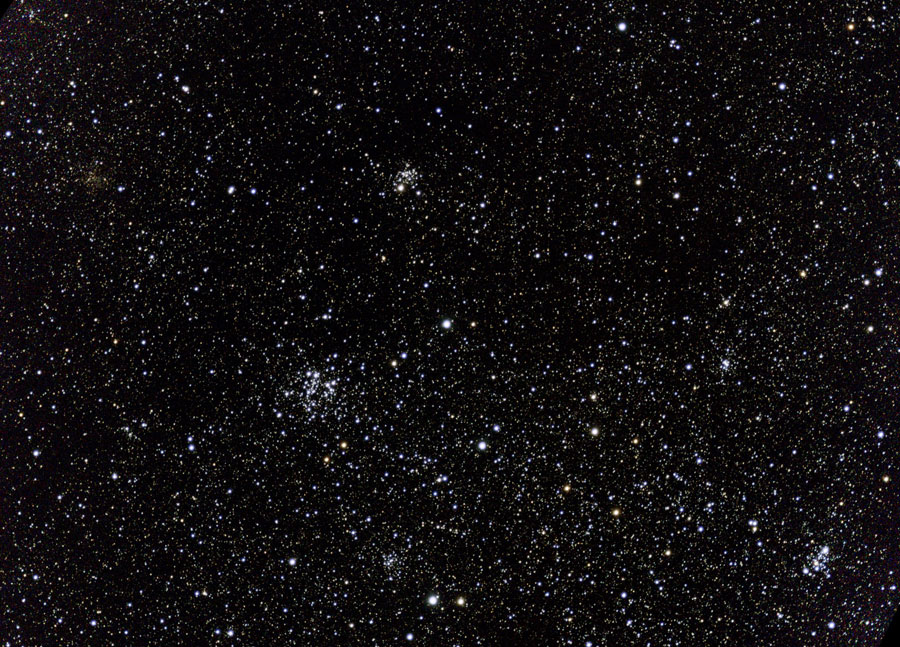 |
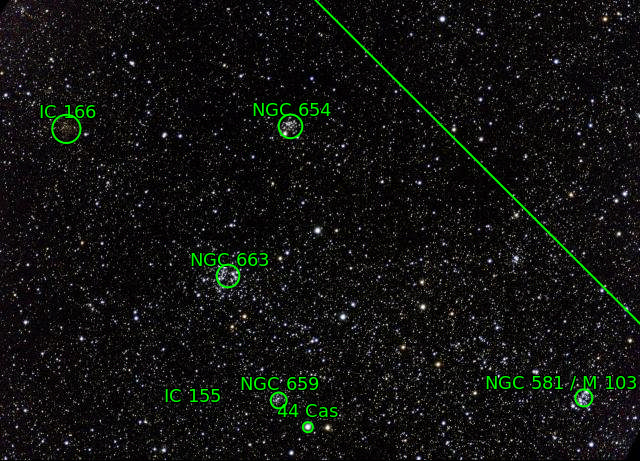 |
|
M 103ff, Nov 1, 2022 - original (365 frames = 3650s), mosaic |
Evaluation by nova.astrometry.org |
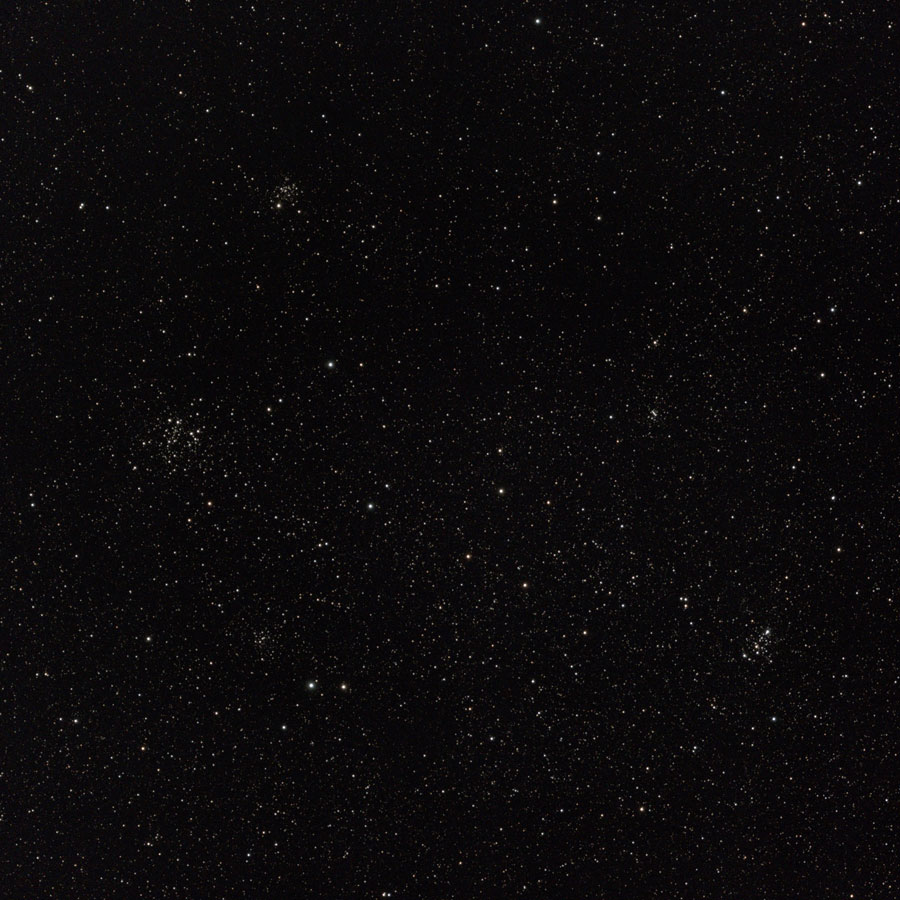 |
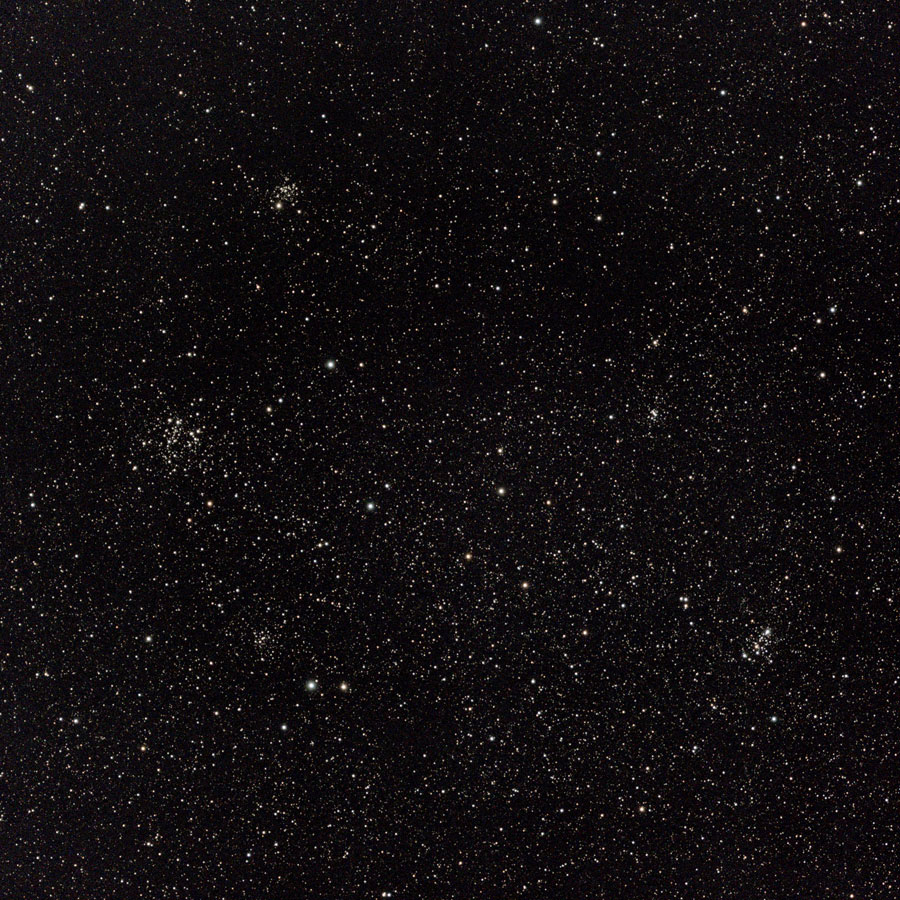 |
|
M 103ff, Mar 5, 2025 - 2000 (154 frames = 1540 s), mosaic |
M 103ff, Mar 5, 2025 - 2000 (154 Frames = 1540 s), mosaic, processed |
|
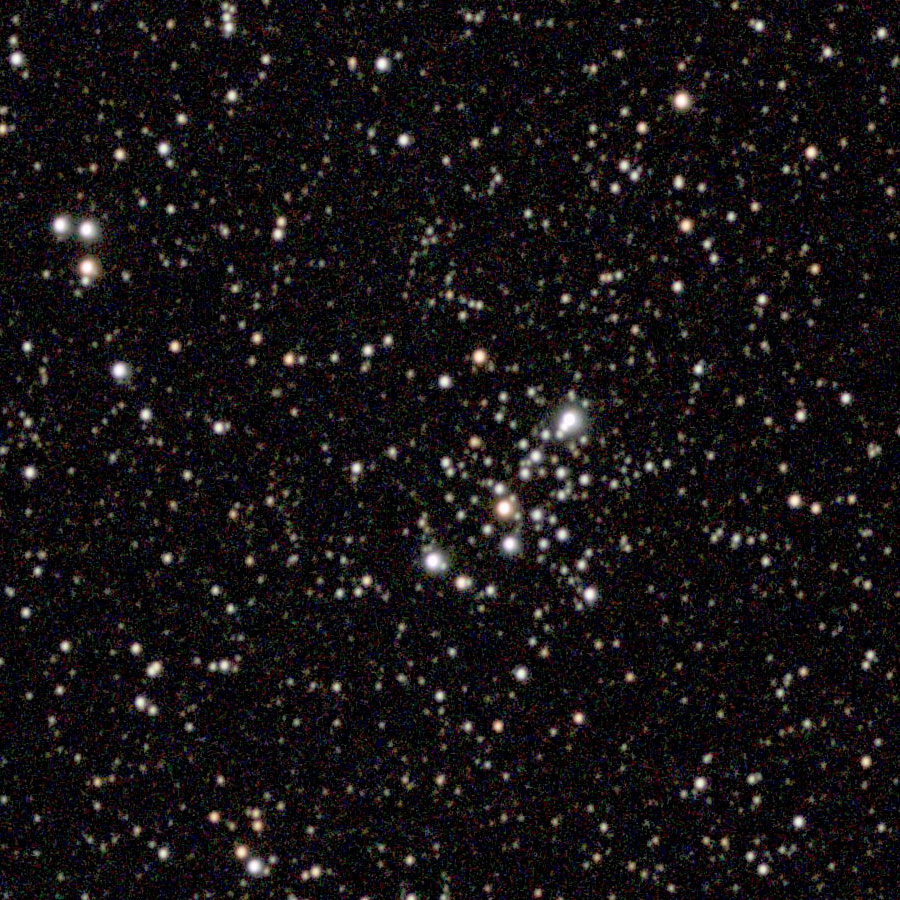 |
 |
|
| M 103, Mar 5, 2025 - (154 Frames = 1540 s), mosaic, processed, section (1:1) | Evaluation by nova.astrometry.net |